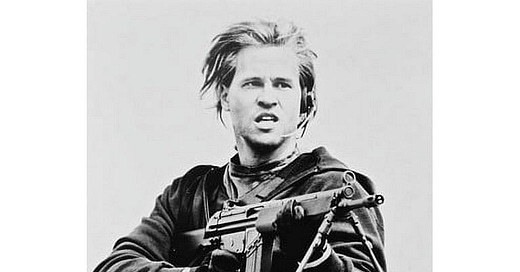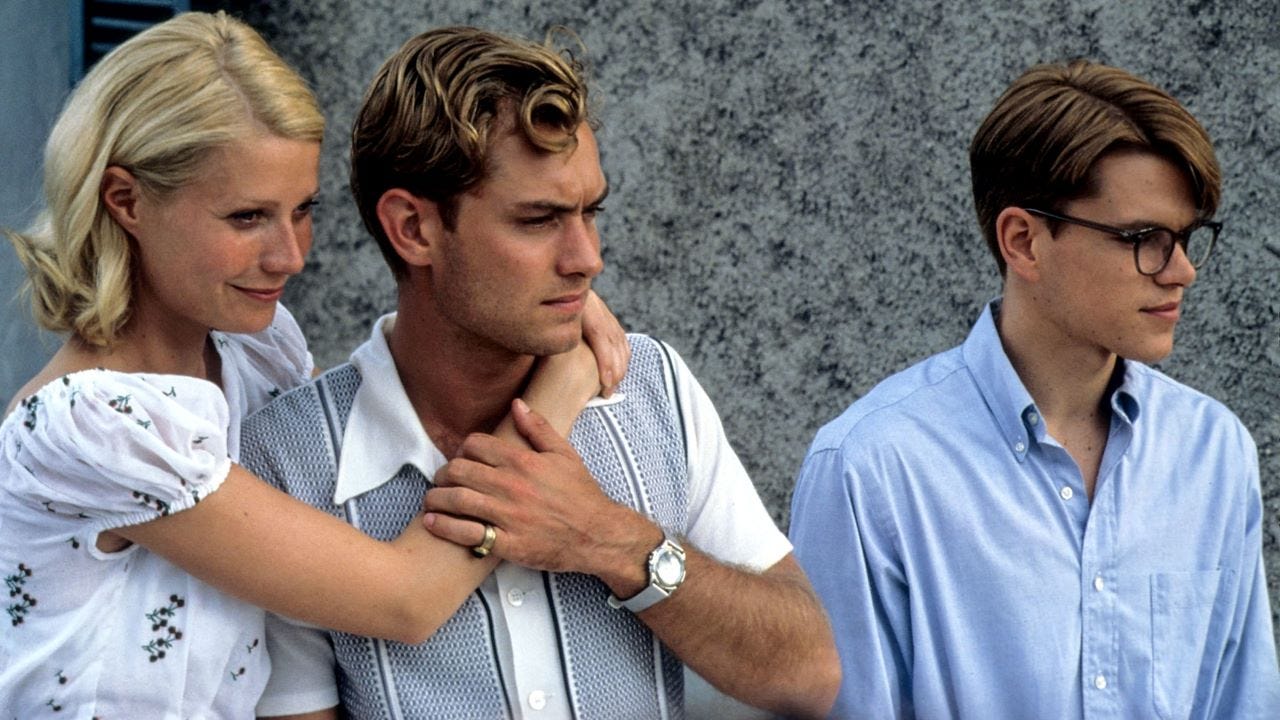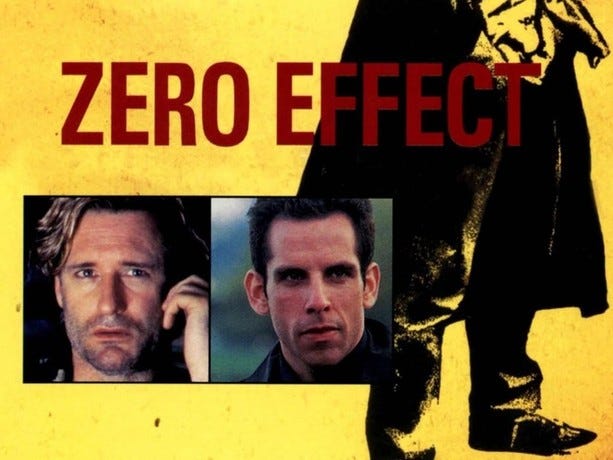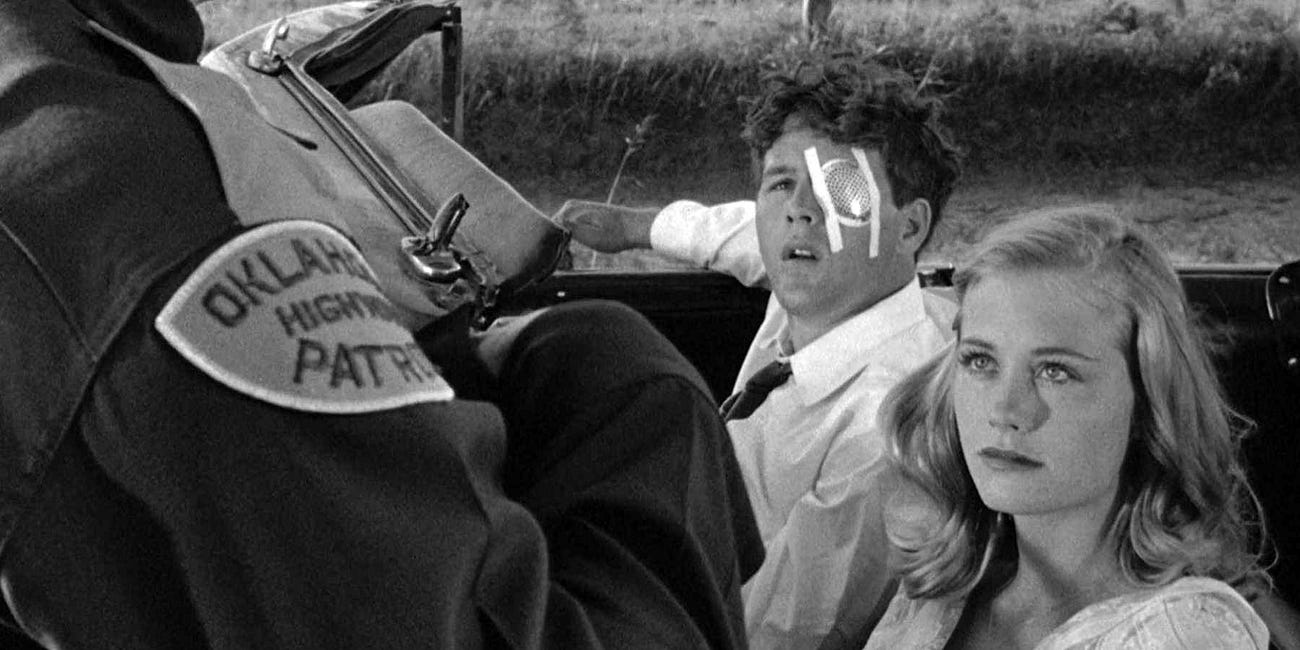A weekly cultural and political brief—Certain Sips: the Weekend Brew
Val Kilmer died this week. You didn’t. And for that, I’m grateful.
There’s a lot to be grateful for, if you stop and think about it, which is something I try to do in when faced with the daily maelstrom of bad news. I don’t have to tell you how bad it is—like Howard Beale said—you know how bad things are already. But unlike Howard Beale, I’m not going to blow my brains out live on national TV. I’m just going to sit here and write my little newsletter, and hope that it helps. Thank you for reading.
First of all, Val Kilmer has got to be one of the coolest names ever. They say he was also one of—if not the—single most talented actor of his generation. So this week in commemoration I decided to watch Heat, the epic 1995 Michael Mann drama featuring Kilmer, Pacino, De Niro, Tom Sizemore, Jon Voight, and a young Natalie Portman. I had somehow evaded ever seeing this classic before, so it was just as well that Kilmer’s untimely demise prompted me to airpop some popcorn and settle in for the 170-minute feature.
By the way, if you make popcorn in an air popper or on the stove, I cannot recommend highly enough melting Kerrygold Irish butter as a topping. I know I know, hot take. The world’s finest commercial butter tastes good. Still, I never considered using it on my popcorn until this week and I will surely never go back.
Good Viewing
Everybody in Heat is some form of predator, and Mann doesn’t really invite the audience to identify with any of them. It’s an unusual and disorienting choice, but ultimately masterful, as the experience of watching the story unfold without being able to latch on to any character in this dark world establishes an almost sociopathic distance from the onscreen violence and inhumanity.
And what a cast: a gaggle of Hollywood legends at the height of their power, including the first ever big screen scene between Pacino and De Niro. The film did not lose money, but it was by no means successful at the box office. In the thirty years since its release, however, Heat has accumulated a well-warranted cult status. I don’t plan on watching it again any time soon, but I feel I have scratched off an important line in my 90s cinema checklist.
Nearly four years to the day Heat was released, Anthony Minghella’s The Talented Mr. Ripley hit theaters. Like Heat, Ripley was also a mild box office success but acquired widespread love and appreciation in the years that followed. While Heat brought together fully formed Hollywood icons, the young stars of Ripley were only beginning to blossom in their brilliance back in 1999: Matt Damon, Jude Law, Gwyneth Paltrow, Philip Seymour Hoffman, and Cate Blanchett. 25 years later we look back with some measure of awe at how stacked this cast was, but at the time only Minghella knew how good this group truly was.
More Good Viewing
While the performances in Ripley truly dazzle, the cinematography and scene-stealing locations are as seductive as Damon and Law. 1950s Italy oozes with lush, bright golds, bronzes and blues. The lavish trappings of generational wealth never looked so good. But this is, as are all Tom Ripley adaptations, a dark tale of theft, manipulation, murder. Everyone here is a predator too, and like Heat, we are not exactly encouraged to identify with any of the characters in the film. The only way to survive the film is to stay unattached, to sit back and watch it spiral in delicious horror.
I found Ripley to be stunning and gorgeous, yet when I took in the human predation in Heat I was treated to Michael Mann’s signature expression of Los Angeles, a soulless landscape so cold, bleak, and impersonal. Both films enlist top-tier talent in incredible performances that paint humanity as fundamentally wired to eat its own. Whether you’re splashing along the Amalfi coast or cruising down the vacuous 405, the only relief is not having rooted for anybody in either story.
But these are just stories. In every chapter their protagonists choose the fork in the road taking them further and further from their humanity. We may identify with their ambition, lust, greed, and even their baseline survival instincts. But we still have the choice in our real lives to either take advantage of our neighbor or work alongside them in honor and mutual dignity.
Yeah, things are pretty bad right now. Val Kilmer is dead. But you’re not, and that’s no small thing. Make it count, old sport. See you next time.
ICYMI, check out these related posts:
Certain Sips: The Weekend Brew
Both The Big Short and Margin call are must-see, not only for their stylistic dynamism and incredible acting, but for the more comprehensive lessons they teach about Wall Street and human nature. If you haven’t seen either of them, you’re in for a treat. Or if you have but—like me—it’s been a decade, now’s a great time to revisit these gems.
Certain Sips: The Weekend Brew—Deep Cuts Edition
To whatever degree the project was a failure, it didn’t stop Kasdan from moving on to make the profitable Orange County and Walk Hard: the Dewey Cox Story, and two astronomically successful Jumanji films. To my teenage ears though, the breakout revelation of Zero Effect was to be found in its soundtrack: I fell head over heels for a golden-guitar love song by independent artist Brendan Benson.
The Last Picture Show: A Cinematic Elegy for Innocence Lost
There is an electrifying dissonance between the narrative substance and cinematic style of Bogdonavich’s masterpiece, which received one of the sixteen Best Cinematography Academy Award nominations Robert Surtees would earn over his career.









